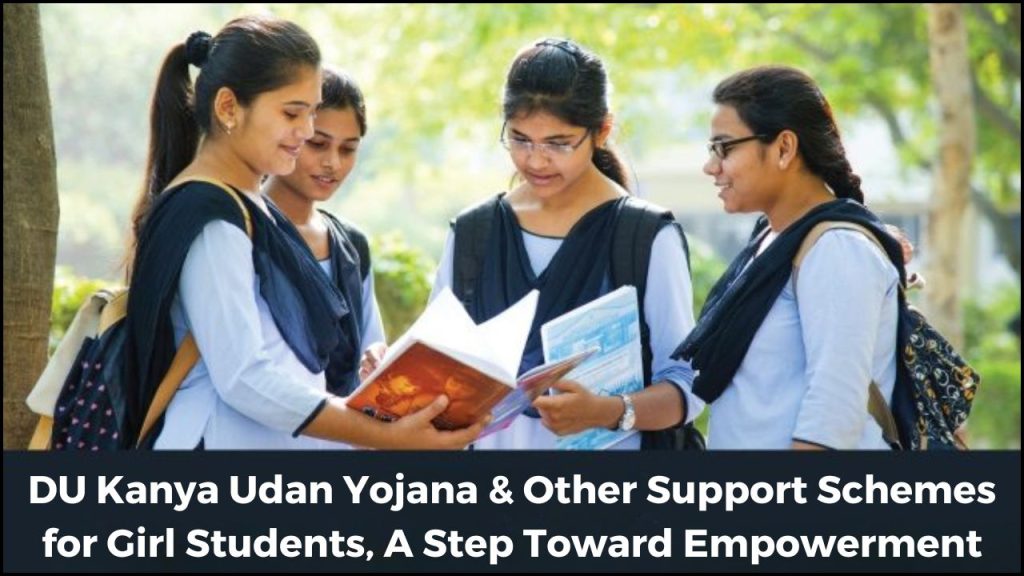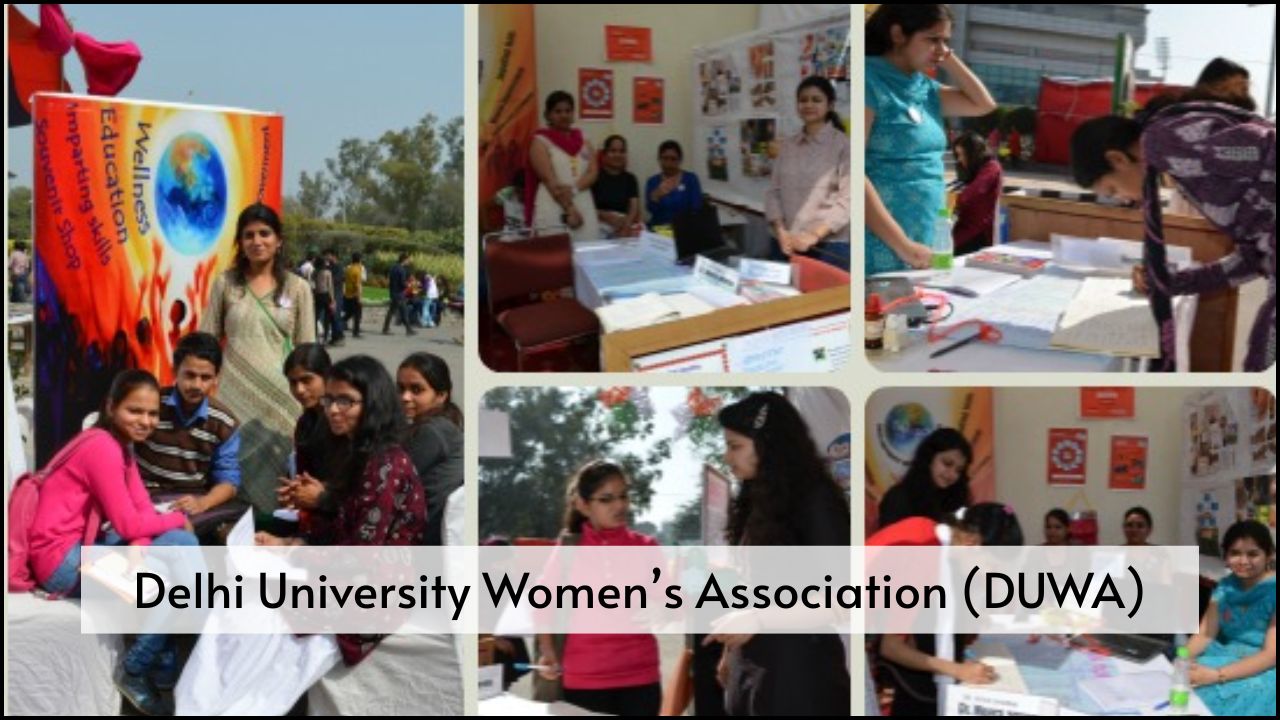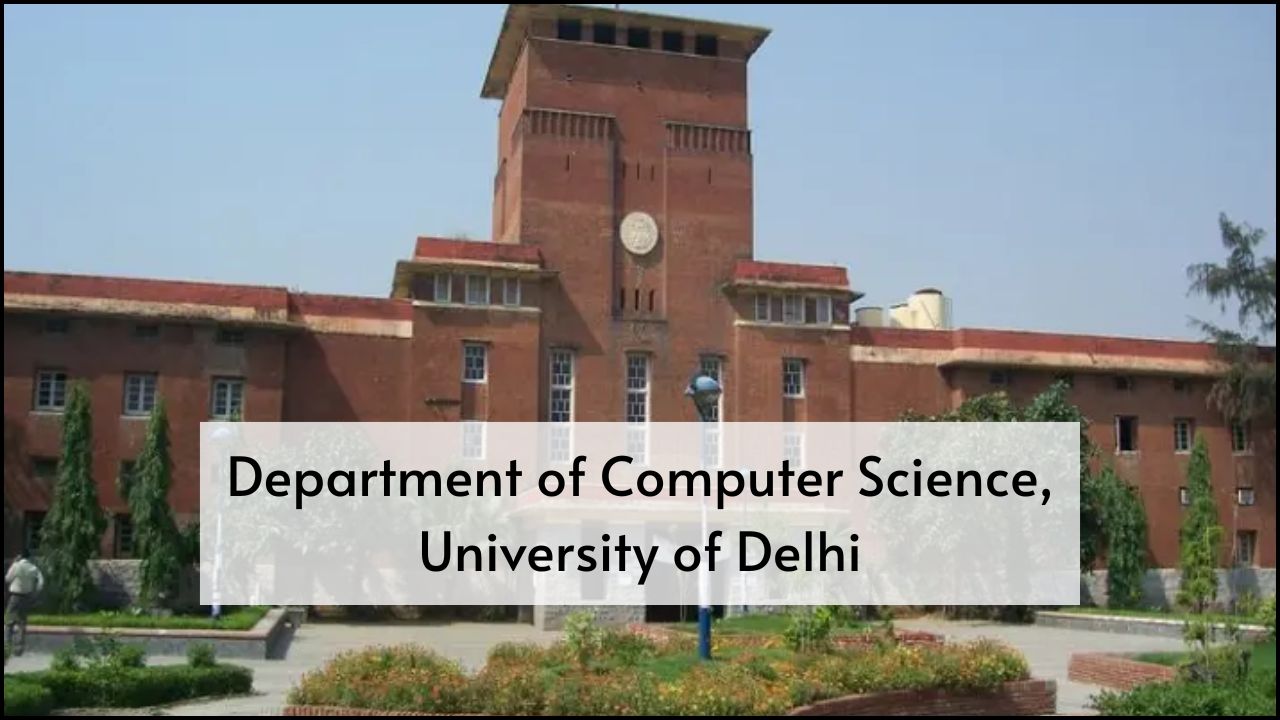
Education is the foundation of empowerment, especially for young girls who are often at a disadvantage due to socio-economic barriers. Recognizing this, the University of Delhi (DU) has taken significant steps to support female students through dedicated schemes like the Kanya Udan Yojana, alongside various state and central government programs aimed at encouraging girls to pursue higher education.
This article explores DU’s Kanya Udan Yojana, how it benefits female students, and other similar initiatives across India. These schemes are not just financial aids, they are life-changing opportunities for many young women.
Table of Contents
What is DU Kanya Udan Yojana?
Kanya Udan Yojana is a student welfare scheme introduced by the University of Delhi to offer free education (full fee waiver) for female students admitted under the Economically Weaker Section (EWS) quota. The aim is to promote higher education among girl students who come from financially disadvantaged backgrounds.
Key Highlights of DU Kanya Udan Yojana:
| Female students from the EWS category | Details |
|---|---|
| Scheme Name | DU Kanya Udan Yojana |
| Launched By | University of Delhi (DU) |
| Target Beneficiaries | Female students from EWS category |
| Benefit Offered | Full tuition fee waiver |
| Applicable Courses | UG & PG courses in DU colleges |
| Eligibility | EWS certificate, Female student, DU admission |
| Application Process | Female students from the EWS category |
| Purpose | Encourage higher education among girls from weaker sections |
Objectives of Kanya Udan Yojana
- To promote gender equality in higher education.
- To offer financial support to academically talented but economically weak girls.
- To reduce the dropout rates of female students in colleges.
- To empower girls to become independent through education.
Eligibility Criteria
To avail the benefits of the Kanya Udan Yojana, a student must meet the following conditions:
- Must be a girl student.
- Admitted to a Delhi University college (UG or PG).
- Belong to the Economically Weaker Section (EWS).
- Valid EWS certificate from a competent authority.
- Not availing of other full scholarships for the same course.
How to Apply?
Applying for the DU Kanya Udan Yojana is a simple and transparent process:
- Complete admission to a DU college under the EWS quota.
- Visit the student welfare office of your college or the DU website.
- Submit your EWS certificate, admission documents, and identity proof.
- The application will be verified and, if approved, tuition fees will be waived.
Other Support Schemes for Girl Students in India
Apart from DU’s own initiative, several central and state government schemes offer scholarships, stipends, and fee waivers to encourage girls’ education.
Here’s a list of some major support schemes:
1. Central Government Schemes
| Scheme Name | Offered By | Benefit | Target Group |
|---|---|---|---|
| CBSE Udaan Scheme | Ministry of HRD | Free coaching for engineering entrance | Class 11 & 12 girls |
| Beti Bachao Beti Padhao | Ministry of Women & Child Development | Advocacy + Incentives | Girl children across India |
| National Scheme of Incentive to Girls for Secondary Education (NSIGSE) | MoE | ₹3,000 fixed deposit | SC/ST girls passing Class 8 |
| Post-Matric Scholarship for Girls | Ministry of Social Justice | Fee waiver + stipend | SC/ST/OBC girl students |
| Pragati Scholarship | AICTE | ₹50,000 annually | Girls in technical education |
2. State Government Schemes
| Scheme Name | State | Benefit | Eligibility |
|---|---|---|---|
| Ladli Lakshmi Yojana | Madhya Pradesh | Education expenses covered | Girl born after 2006 |
| Kanya Vidya Dhan Yojana | Uttar Pradesh | One-time ₹30,000 | Girls passing Class 12 |
| Mo Kanya Yojana | Odisha | Monthly stipend | Girl students in +2 and +3 |
| Bicycle Scheme for Girls | Bihar, Rajasthan, etc. | Free bicycle | Class 9 & above girls |
| Free Education for Girls | Tamil Nadu | 100% fee waiver | UG & PG courses in govt colleges |
Why Support Schemes Like These Matter?
1. Bridging the Gender Gap in Education
Schemes like Kanya Udan Yojana play a key role in reducing the gender gap by removing financial hurdles that disproportionately affect girl students.
2. Reducing Dropout Rates
Many girls drop out after school due to family constraints or the inability to afford college fees. These schemes help retain them in higher education.
3. Boosting Employment Opportunities
With better education, girls have a higher chance of employment, contributing to the economy and improving their families’ living standards.
4. Empowering Women Socially and Economically
An educated girl is more likely to stand up for herself, make informed decisions, and positively influence the next generation.
Challenges in Implementation
While such schemes have made a difference, several challenges persist:
- Awareness: Many eligible students are unaware of the schemes.
- Documentation hassles: Getting EWS or caste certificates can be cumbersome.
- Delayed fund disbursal: Some schemes face administrative delays in releasing funds.
Suggested Improvements
- Create a unified scholarship portal for all girl-centric education schemes.
- Ease the documentation process via DigiLocker and Aadhaar.
- Conduct awareness drives in schools and colleges.
- Encourage private sector participation in girl student sponsorship.
Common Queries
Q1. Who is eligible for DU Kanya Udan Yojana?
Female students admitted under the EWS quota at DU are eligible.
Q2. How do I apply for Kanya Udan Yojana?
Apply through your DU college’s student welfare office with the required documents.
Q3. Can I apply for both the Pragati Scholarship and the DU Kanya Udan Yojana?
No, if you receive a full scholarship from one scheme, you can’t get another full-fee waiver.
Q4. Is Kanya Udan Yojana applicable for PG courses?
Yes, it is available for both UG and PG courses under DU.
Looking Ahead
The DU Kanya Udan Yojana and similar initiatives are important steps in making higher education inclusive and accessible for all, especially girls from less privileged backgrounds. By investing in the education of young women, the country not only empowers individuals but also builds a more equitable and progressive society.
Schemes like these must be expanded, simplified, and widely promoted so that no girl is left behind due to financial hardship. Every girl deserves the chance to dream, learn, and lead.





